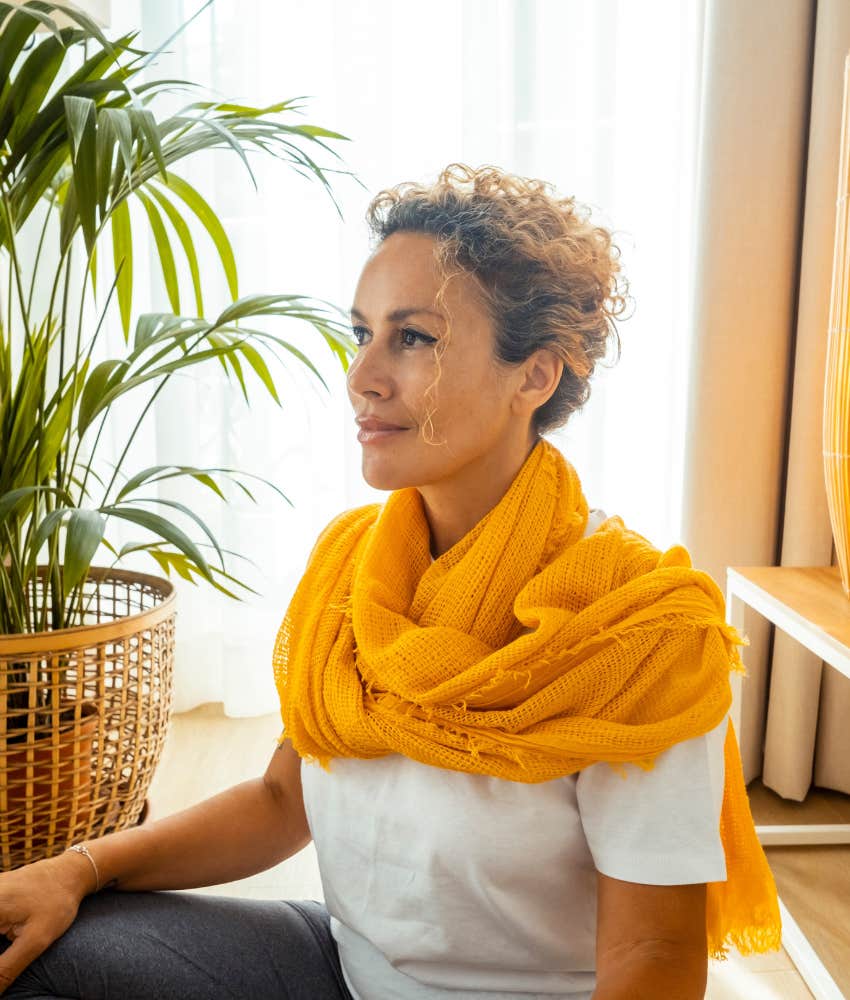The Art Of Saying No: 4 Simple Habits Of People With Boundaries You Don't Mess With
Saying no isn't rude, it's a skill.
 Krakenimages.com | Shutterstock
Krakenimages.com | Shutterstock The holiday season is just around the corner, which means that you probably have some family interactions ahead of you — and the stresses that go with them. Most of us are taught to be nice and make family gatherings conflict-free, which means, when you get right down to it, saying "yes" when we want to, or ought to, say "no."
For this reason, I think of the holidays as "the season of healthy no's" because saying yes can be bad for our health. So learning the importance of why, when, how, and where to say no helps keep strong boundaries in place.
Here are 4 simple habits of people with strong boundaries
1. They understand the preventative medicine of saying no
Once you learn how to say no, you'll find that your stress will slowly disappear. This is especially true for Karen, a patient of mine: When her in-laws called last year, just before Labor Day, to announce that they wanted to stay at her house for 10 days around Thanksgiving, she felt a strong tightness in her stomach.
She experienced muscle spasms that made her feel ill and almost nauseous, but mindful that she should be nice, she ignored these warning signs and told her in-laws, "Yes, of course, it will be a pleasure to have you stay with us."
During the 10-day visit, she cooked for her in-laws, entertained them, drove them around town, and was completely exhausted. Shortly afterward, she came down with severe bronchitis. Despite taking antibiotics and steroids, she coughed for two months and remained weak for another month.
It took a long time for her to get back to normal. Karen's nagging infection, after acting submissive, was no accident: Research from The American Psychological Association showed that submissive behavior can compromise the immune system, increasing chances of infection.
Last week, Karen got the dreaded phone call again: "Hi, Karen, it was so wonderful to stay with you for Thanksgiving last year! We are planning to come again this year and stay ten days again. Would that be OK?"
Karen's stomach immediately tightened up, with spasms even worse than last year. Should she be nice again and say yes to her in-laws?
I predict that if she does, I'll see her in my office frequently this winter. But as a physician, the right thing to do is not to treat Karen's infections after they strike, but to prevent the infections by coaching her to know when, why, and how to say no.
2. They check with their bodies for the right answer
 simona pilolla 2 via Shutterstock
simona pilolla 2 via Shutterstock
Our bodies have their own wisdom that we often ignore because, as a social species, our brains have evolved to suppress negative emotions about others. As a result, we frequently don't know what we really feel and what's best for us. This suppression of feelings is unfortunate because our bodies are the battlefields on which conflicting emotions go to war, producing "battle damage" that harms our health.
It makes sense that one way to avoid stress-induced health problems is to carefully check what's going on in our bodies before the war of conflicting holiday emotions gets out of hand. In Karen's case, her stomach tells her that part of her wants to say no, but is that part stronger or weaker than the parts that want to play nice?
The best way for Karen — or anyone — to get in touch with what his or her body really wants is to practice saying both yes and no in response to imagined questions, such as, "Can we stay with you?" When you do this, pay very close attention to what happens in your body when you say yes versus the physical sensations that arise when you say no.
If saying yes gives you uneasy sensations, tightness in your chest, or belly cramps, you shouldn't say yes. If saying no gives you a twinge of excitement, energy, and empowerment that reinforces the uneasy sensations that go with saying yes, then no is the obvious answer.
But sometimes the answer isn't so obvious. For example, when you feel excited by saying both yes and no, or anxious about giving both answers. In such cases, simply ask yourself which answer elicits the stronger physical sensations, and go with whatever your body feels strongest.
In other words, yes, put bodily sensations on a scale against no bodily sensations to see which are weightier. In the situation illustrated below, the body wants to say both yes and no, but the positive feelings of saying no outweigh the sensations of saying yes, so the best answer would be no.
3. They're assertive in their answers
If, after weighing your feelings, you discover that your body's answer is no, saying the opposite will make you feel helpless — and helplessness can damage your body. In a famous study of learned helplessness in rats, J.M. Weiss found that the stress of receiving unavoidable electric shocks caused many more ulcers than the stress associated with avoiding shocks that rats knew were coming.
Martin Seligman, who developed the concept of learned helplessness through his research on dogs, asserted that helplessness is a major contributor to depression in humans. And depression suppresses our immune system, making us more vulnerable to infection, while significantly elevating the risk of cardiovascular disease.
A colleague of Seligman's, Madelon Visintainer, reinforced Laudenslager and Kennedy's work linking submissiveness to lowered immunity by demonstrating that learned helplessness compromises the immune system of rats, decreasing their ability to fight off cancer.
Finally, researchers studying female college students in Japan found that women with low self-efficacy were more likely to have immune dysregulation under conditions of stress than women with high self-efficacy (who generally feel more empowered in life). The bottom line is that answering with an assertive no instead of a submissive yes can help avoid the helplessness that promotes disease.
4. They're nice (but firm) about their nos
 Benevolente82 via Shutterstock
Benevolente82 via Shutterstock
You don't have to be nasty; in fact, you can say it in a very nice way, starting with a positive statement like, "I would love to see you, but..."
For example, Karen could say, "It would be great to see you, but it is very hard on my body to have family stay over. It would be much easier for me if you could stay at a hotel nearby. There is this great hotel near us, well-located with excellent service. You can come for dinners, and we'll have a great time."
This will allow her to spend quality time with her in-laws while preventing her from becoming ill and exhausted like the year before. The family will understand if they are kind, open, and respectful. If they don't understand, they might decide not to visit, and that's OK, too.
The key is to get through the season with balance, health, and happiness. It is great to do the best you can for family and friends, but one important person in the family is you. So in the future, pay attention to what your body tells you and learn to say no with a smile. And the next time I see Karen, I'll give her some tools for deciding when to say yes or no.
Chris Gilbert, M.D., Ph.D., is an Integrative and Holistic Medicine physician, focusing mostly on public speaking. She is the medical news commentator on Thursday nights on Coast to Coast AM Radio. For 15 years, she was in private practice in California, specializing in the combination of Western and Eastern Medicine and dedicating her life to treating and curing symptoms and illnesses that other physicians haven’t been able to address.

